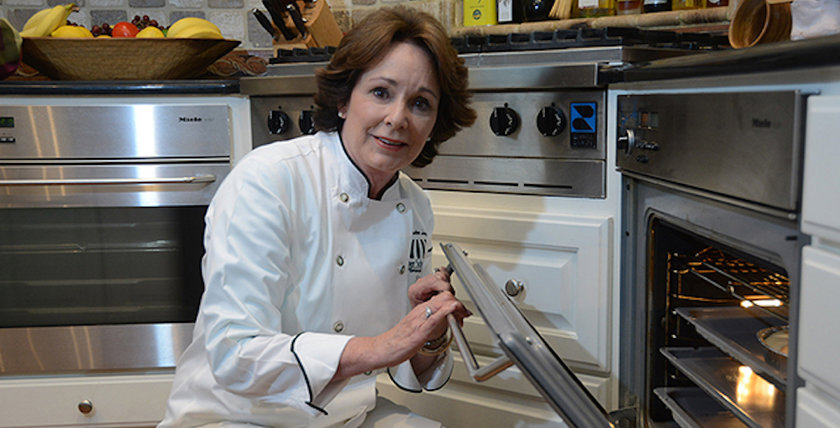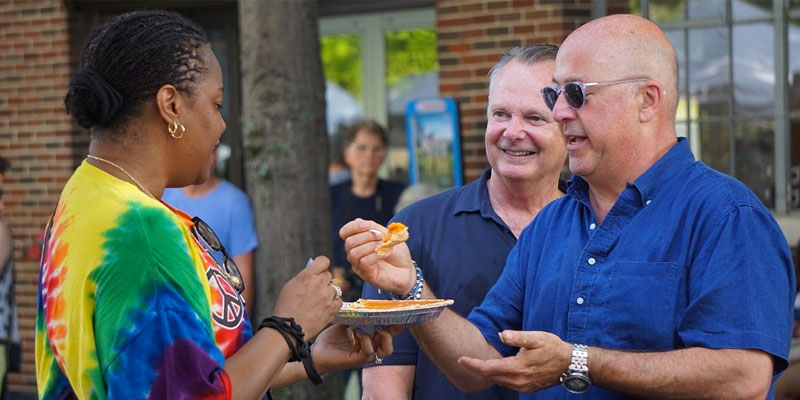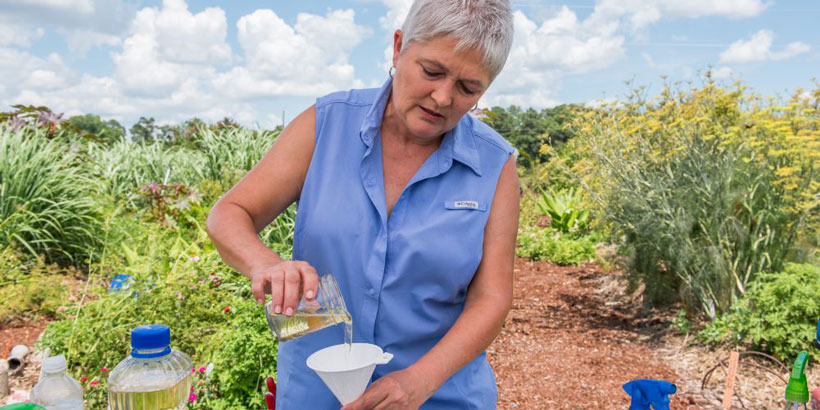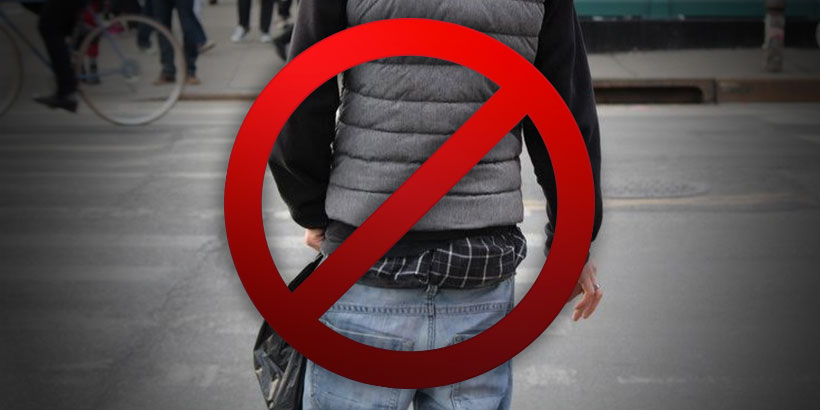Sister Schubert's Homemade Rolls from Alabama NewsCenter on Vimeo.
(Video Above: Sister Schubert’s Homemade Rolls from the Alabama NewsCenter)
All it took was a worn-out wooden kitchen stool.
When Patricia Schubert was a preteen, she used to climb on a kitchen stool and help her grandmother Gommey make bread rolls. She learned from an early age that food not only feeds your hungry stomach, but also has the power to bring families together.
Bringing families together is something she has been doing since 1989.
Had writer Malcolm Gladwell known Sister, he would have included her in his best-selling book: “The Tipping Point,” which chronicles success stories and why some brands rise to the top.
Sister sat in a comfortable chair at her beautiful antebellum home in Andalusia recently to tell the story of her famous rolls. She is a charming woman with gentle skin and eyes.
She carries herself with the poise of someone who is not in a hurry, another Southern attribute she learned at an early age. Her smile is genuine and her humility is magnetic.
“I grew up baking and cooking and loved every bit of it. Then I went on and studied interior decorating and worked with my father, but my love for cooking never waned,” she says.
“In 1989, my church in Troy held a food fair, and I made my grandmother’s rolls. The next year, we made many more and froze them after they were baked. When they thawed, they tasted like they were just made. That was when Sister Schubert rolls were born.”
Humble beginnings
Sister continued selling her rolls at the church and within two years, she converted half of her father’s warehouse to a bakery. Another year went by, and she was making one and a half million rolls a day.
After another expansion, Sister was producing five million rolls a day. Early on, she met food broker George Barnes, and they would marry. In 2001, they sold the company to Lancaster Colony in Ohio but remained to run the business. Currently, Sister Schubert Rolls produces nine million rolls per day.
Today, Sister is the founder and vice president of research, as well as the brand spokesperson.
“I absolutely adore traveling and visiting grocery stores and meeting my customers. I hear wonderful stories from people about the first roll they had and how much they loved it,” she says.
“I hear stories of how families come together around my rolls. Some people will get tears in their eyes telling me these stories, and how my rolls bring them many memories of family members. It feels incredibly rewarding, and it brings me so much happiness to know my products make people happy.”
When asked if she feels a sense of purpose doing what she does, there is a little pause, along with a reflective gaze.
“I certainly do. I had no idea when this whole thing started. I was just making rolls. Now I see what my rolls do, and I am beyond blessed.”
Sister and George Schubert never forgot their humble beginnings when choosing to locate one of their three bakeries in Luverne – just up the road from Andalusia.
They helped that community, struggling after the loss of textile work, with solid employment. At one point, they were the largest employer on the area.
While visiting her immaculately clean bakery in Luverne, Sister hugged more workers than she talked to.
She also grabbed a sample of the dough out of the assembly line to examine its elasticity.
More do-good
Sister and George started the Barnes Family Foundation with the mission of helping those in need, and to have open eyes and an open heart to hear God’s word and to make a difference in people’s lives.
After seeing the needs around the globe and especially in the Ukraine, Barnes established a scholarship in 2005 to help college students study abroad and broaden their knowledge of the world outside their own community.
They are extremely involved in their church and always helping the poor and the elderly.Together, they have given millions of dollars to non-profits and needy causes.
Sister also helps adoption efforts in Alabama after adopting a child from the Ukraine.
“I was visiting an orphanage one time when my eyes locked into the eyes of this little boy, and I knew I was going to adopt him.” Alexander had clubbed feet and Sister was told not to expect much. Now he is active in different sports and makes the entire family, including Sister’s four biological children, happy.
Sister’s life philosophy is simple.
“We are so blessed, we love our church, we love to share our blessings with the less fortunate. When God blesses you, you in turn are to bless others.”
Sister gets a soft look in her eyes when thinking about the less fortunate. Then, when asked where she sees herself and her company in five or 10 years, she gets the impish smile of a child:
“If God is willing, I will be baking bread. I will be kind, and will try to do the best to my ability to help others. I will live everyday like it’s my last.”
Sister now uses a kitchen stool similar to the one she used as a preteen to teach her grandkids how to bake. It’s not worn-out or wooden, but the legend continues.













